Chickens in good shape bring healthy eggs and healthy chicks into world, so how long do chickens live? That lifespan may vary based on how the chickens are cared for and if they have good genetics.
Let’s take a look at how long the average chicken lives, along with ways to help your chickens live longer.
How Long Does the Average Chicken Live?
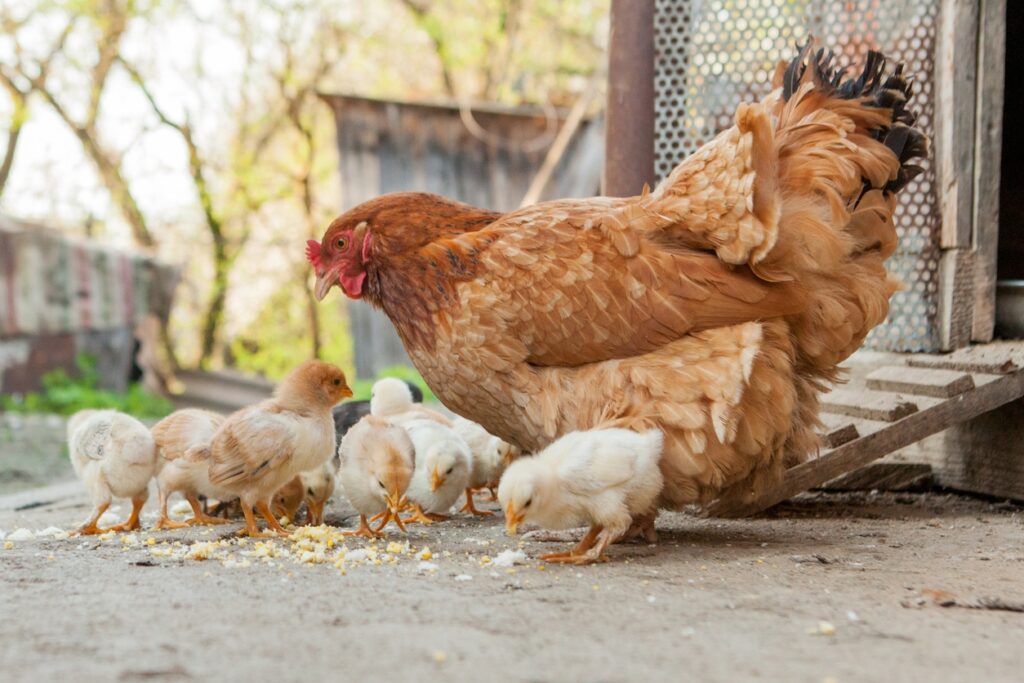
Most chickens live anywhere from 3 to 10 years, but that varies greatly based on their breed, environment, and genetics. Chicken lifespans in the wild are also drastically different than in captivity.
How Long Do Chickens Live in the Wild?
The exact life expectancy of a chicken in the wild is unknown, but it’s usually anywhere from 2 to 7 years. However, wild chickens are exposed to more predators and diseases, so most don’t live past 4 years old.
Even so, most chickens survive better than expected in the wild. With hundreds of chicken breeds out there, some are more suitable for living in the wild while others are too domesticated.
How Long Do Chickens Live in Captivity?
Most chickens live longer in captivity because they have less threats. However, many of their lives are cut short if they’re used for meat. Chickens in captivity live about 5 to 10 years, but again, it depends on other factors like breed.
If you don’t give your chickens a large, clean space, they’ll get sick easier, which could shorten their lifespan. So, you have some influence on how long your chickens live for.
Why Do Some Chickens Live Longer Than Others?
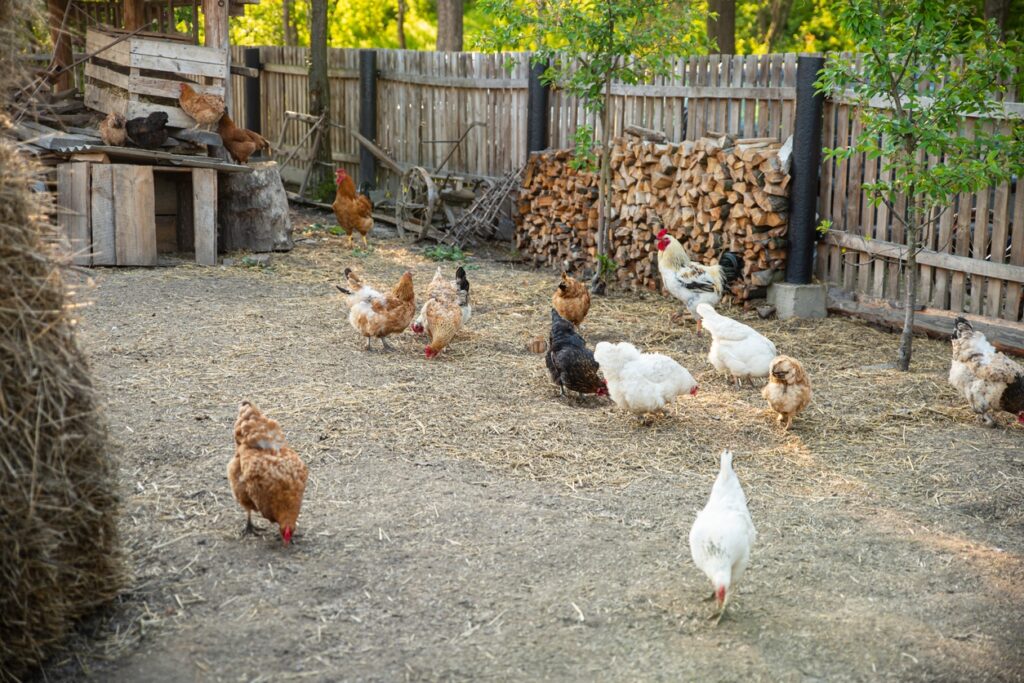
Since there are so many factors that go into a chicken’s lifespan, it’s possible for one chicken to greatly outlive another, even if they share many of the same traits.
Here are some aspects that influence a chicken’s lifespan:
- Breed
- Genetics
- Diet
- Cleanliness of coop
- Ventilation in coop
- Space to roam
- Vet care
- Predators
- Slaughter
Giving chickens proper space, food, and medical care can help them live longer, but it’s not always a guarantee. If their breed doesn’t live long, if you use them for meat, or if a predator gets them, they’ll live much shorter than the average chicken.
It’s important to note that hybrid chickens tend to have shorter lifespans than purebreds. Hybrids are two chicken breeds mixed together to enhance egg laying capabilities. While this is great if you’re looking to sell eggs, it often causes the chickens not to live as long. However, some live longer due to their decreased risk of health concerns.
How Long Do Popular Chicken Breeds Live for?
Since every chicken breed has a different lifespan, let’s take a look at the life expectancies of some of the most popular breeds.
- Rhode Island Red – 5 to 8 years
- Wyandotte – 6 to 12 years
- Orpington – 8 to 10 years
- Silkie – 7 to 9 years
- Plymouth Rock – 8 to 10 years
- Leghorn – 4 to 6 years
- Easter Egger – 8 to 10 years
- Australorp – 6 to 10 years
- Cochin – 8 to 10 years
As you can see, chicken breeds have a wide range of lifespans, with some living much longer than others. Chickens with shorter lifespans are often better at providing eggs and meat, so choosing the best breed depends on what you’re looking for.
Chickens with the Shortest Lifespans
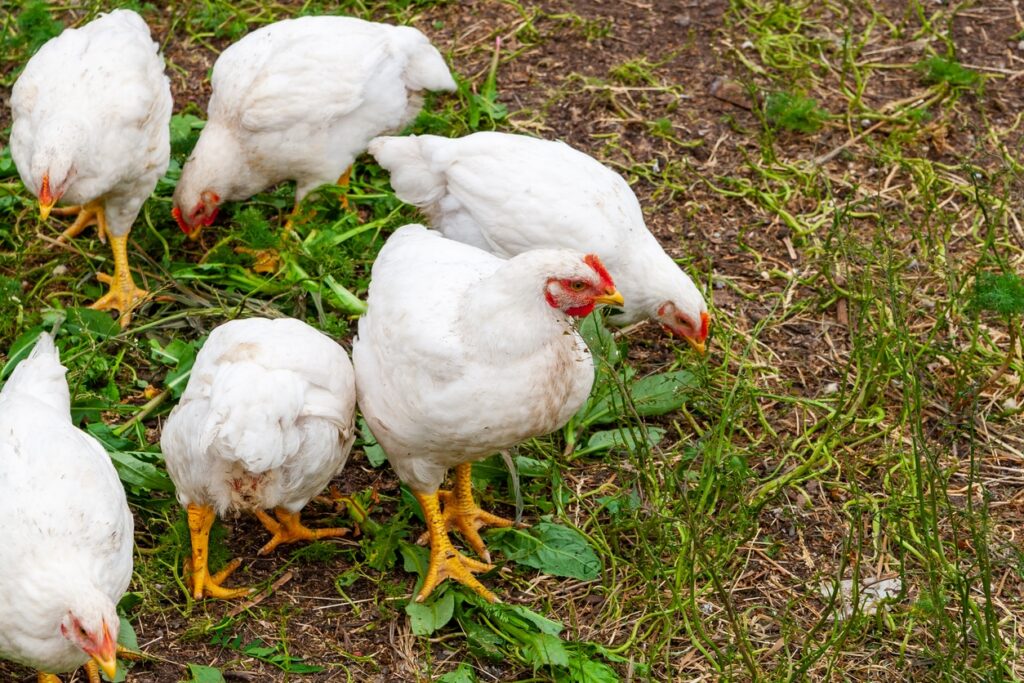
The breeds with the shortest lifespans are usually the ones bred for the most production, whether that’s eggs or meat. They’re still great chickens to keep, but they won’t be around as long.
These breeds live the shortest amount of time:
- ISA Brown – 2 to 3 years
- White Broiler – 5 to 7 weeks
- Cornish Rock – about six months
ISA Browns are know as good egg producers while White Broilers and Cornish Rocks are bred for meat. So, they’re often killed early on to create the best quality food. They would likely live much longer in the wild.
Chickens with the Longest Lifespans
A lot of the longest living chickens are considered “landrace breeds.” They’re more adapted to their environment and they often have varied gene pools. Their egg-laying capabilities aren’t always as efficient, but they’ll be able to lay eggs for longer.
Here are the longest-living chicken breeds:
- Plymouth Rock – 8 to 10 years
- Easter Egger – 8 to 10 years
- Cochin – 8 to 10 years
You might notice that all three of these chickens are also some of the most popular breeds. So, many keepers like to have chickens that are more likely to stick around for a while.
How Old is the World’s Oldest Chicken?
The oldest chicken in the world was named Matilda, but it’s unclear what breed she was. She lived to be 16 years old, and she made several appearances on TV.
Matilda was kept as a pet, rather than used for eggs or meat, which is probably why she lived so long. In fact, Matilda never laid any eggs, which experts believe was the key to her success. Since her body was never strained by laying an egg, she lived a healthier, stress-free life.
When Do Chickens Stop Laying Eggs?
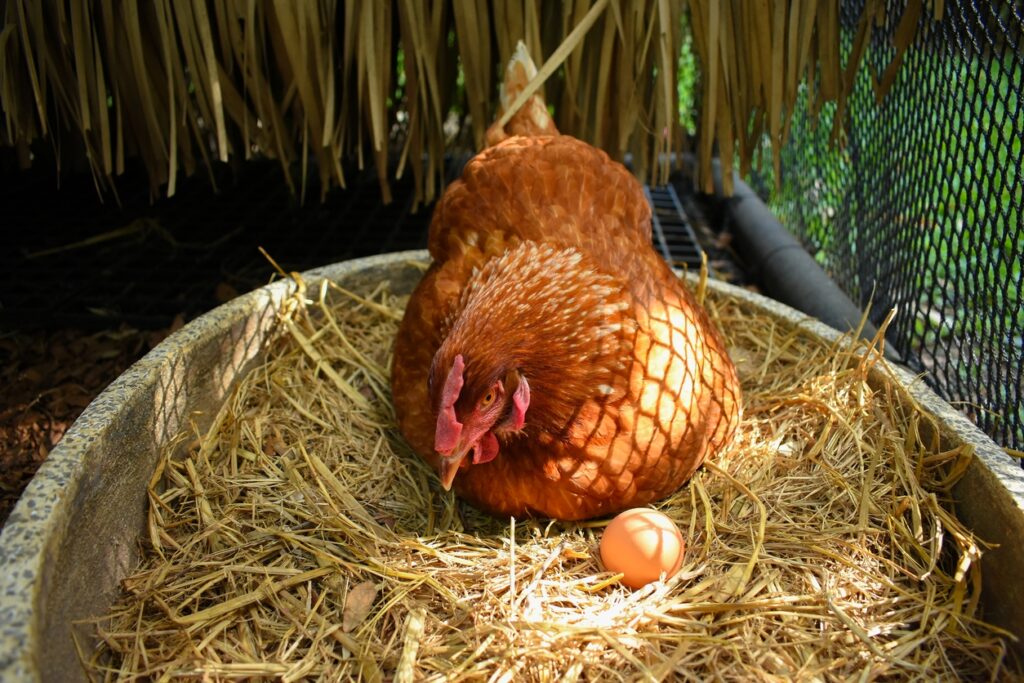
Chickens lay the most eggs when they’re young, usually under two years old. Yet, every year, hens will lay fewer and fewer eggs. Most chickens lay eggs for 5 to 7 years, but that number can vary based on the individual chicken and their breed.
When a chicken’s egg production slows down, that’s when keepers often replace the chickens with younger hens. Yet, age isn’t the only thing that can slow or stop a hen’s egg-laying abilities. Stress, poor nutrition, and molting could also cause egg production to slow sooner rather than later.
What Do Most Chickens Die From?
Most chickens’ lifespans are shortened because they’re killed for meat. However, other factors could cause a chicken to die early, such as deadly diseases or an improper environment.
Marek’s disease is the most common disease for chickens. Infected chickens might not show symptoms, but the disease can be deadly. Vaccinations are the only way to fully protect your chickens from it.
Keeping the coop clean can prevent chickens from getting sick, but some diseases are harder to avoid. If you suspect that something is wrong with your chicken, you should take them to the vet to avoid their lifespan getting cut short.
Free-range chickens might die early if exposed to predators. An enclosed run is the best way to give them space while also blocking off hungry wildlife.
Ways to Help Your Chicken Live Longer
How long chickens live greatly depends on how well you care for them. Here are some tips to help keep your chickens in great shape.
Keep the Coop Clean
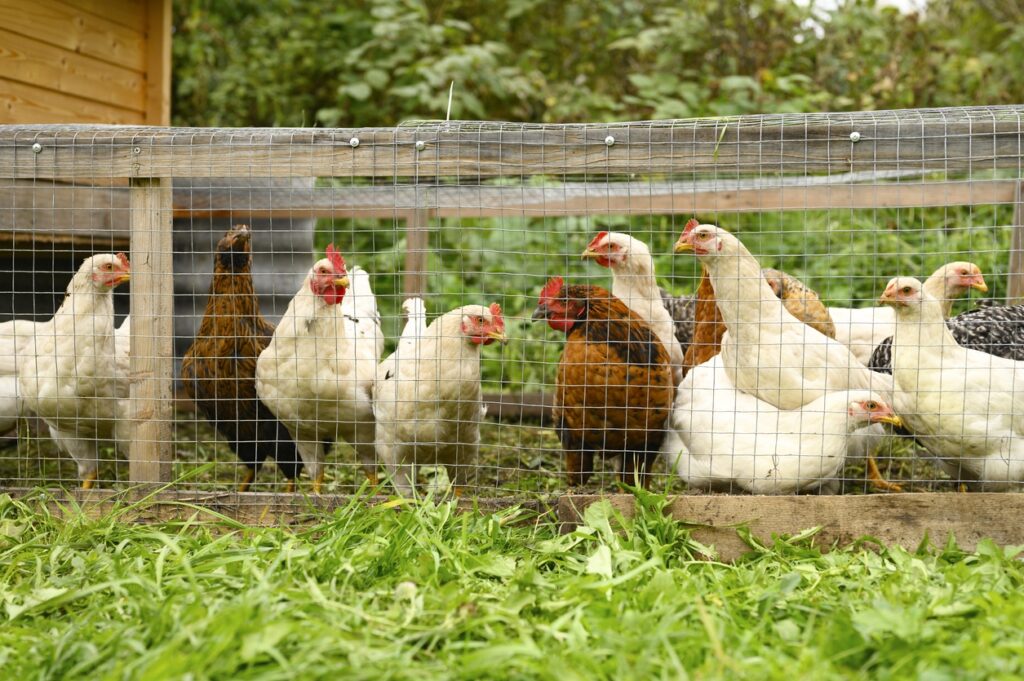
It’s easy for parasites like mites, lice, and worms to infect your chickens if you don’t clean their space regularly. Remove any feces, feathers, and anything else that could be carrying dangerous germs. Rinse down areas and replace bedding as needed.
You’ll also want to make sure the food and water you provide for your chickens is clean. Ingesting unhealthy substances is the easiest way for any creatures to get sick. So, the better you take care of your chickens’ space, the healthier your chicken will likely be.
Give them Space
Giving chickens lots of space in the coop is another great way to keep them healthy. It should have insulated areas to protect them in the winter and shade for them to hide under in the summer. Each chicken should have plenty of space to explore, along with perches to rest on.
It’s a good idea to build a secure area as well to prevent predators from getting inside. Chickens also benefit if they have lots of things to do, so chicken toys are a great way to keep them active.
Buy Healthy Chickens
When you first start your flock, make sure you choose healthy chickens. That way, if you breed them together, you’ll be more likely to get healthy offspring with minimal genetic problems.
Find a reputable breeder who has a lot of experience caring for animals. Don’t be afraid to ask them lots of questions about the breed to make sure it’s right for you. It’s best to be cautious when choosing where to buy an animal from.
Provide Quality Food
If you’re looking for a hen to lay lots of eggs, a healthy, calcium-rich feed is the way to go. While lots of protein is great for most animals, too much protein can lead to kidney problems.
So, choose a feed that’s formulated for adult hens to ensure they’re getting all the ingredients they need. Letting chickens forage can also add some variety to their diets.
However, even chickens on a healthy diet can still be at risk. Many breeds are prone to being overweight, so they need more exercise to prevent that. Offering chickens more space and toys can keep them occupied and stop them from being “couch potatoes.”
Take Them to the Vet
Even though chickens aren’t viewed like cats and dogs, they still get sick and need checkups. So, having them looked at by a vet regularly can help you ensure that they stay in good shape. Then, if any health problems arise, they can be treated before it’s too late.
Improving Your Chicken’s Lifespan
Chickens don’t live too long, but with your help, their life expectancy and quality of life can greatly increase. Healthy chickens lay more eggs and create healthier chicks. So, it’s important for keepers to consider all the aspects of a chicken’s health when caring for them.
The answer to “how long do chickens live?” greatly varies based on the breed. So, research a wide range of chicken breeds before settling on the best one for you. As always, make sure you buy chickens from a reputable breeder to avoid future health concerns.
